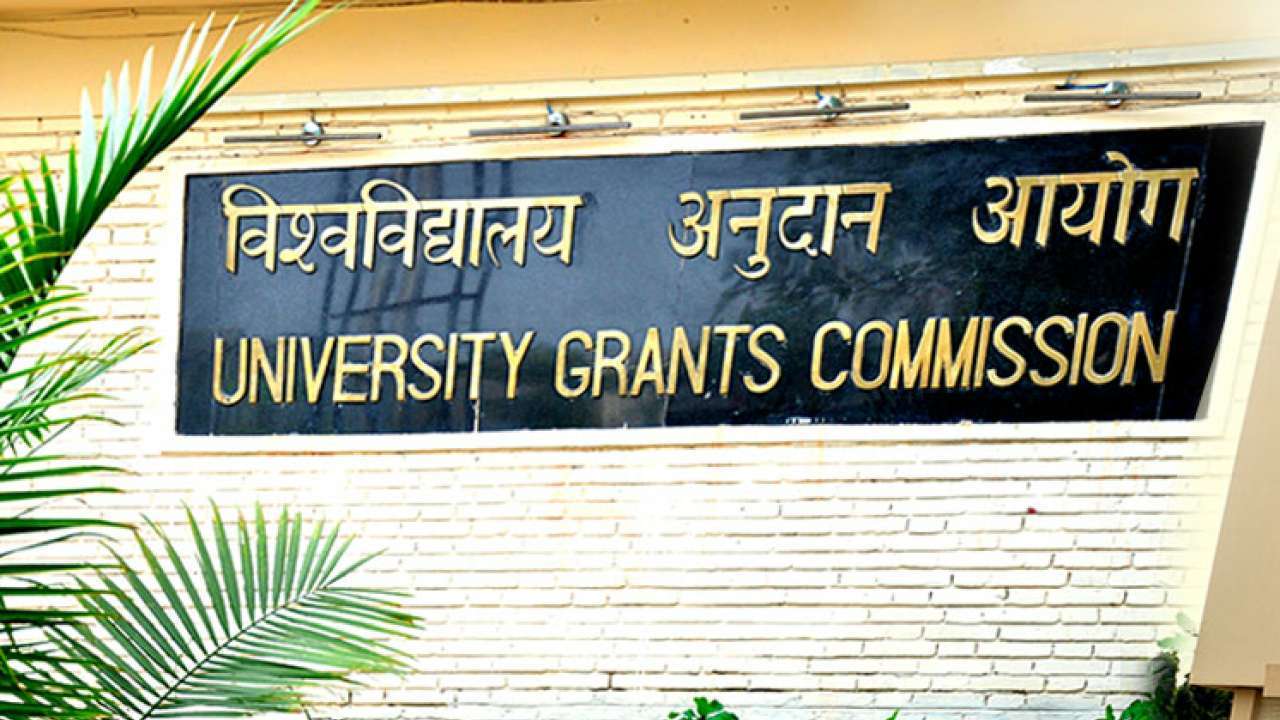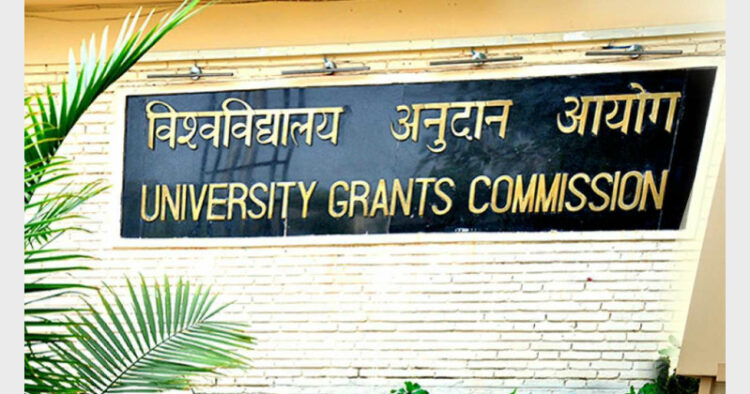
Universities and colleges across the country have been closed since early March, even before the lockdown was imposed. On Thursday, November 4, UGC issued guidelines for the reopening of schools and colleges.
Measures required before re-opening of Campuses:
- Before reopening of any campus, the Central or the concerned State Government must have declared the area safe for reopening of educational institutions. The directions, instructions, guidelines and orders issued by the Central and State Government concerned regarding safety and health in view of COVID-19 must be fully abided by the higher education institutions.
- However, they may develop stricter provisions and guidelines if they feel it necessary. The universities and colleges have to make adequate arrangements to ensure the safety and health of students, faculty and staff.
- The universities and colleges shall be allowed to open only if they are outside the containment zones. Further, students and staff living in containment zones will not be permitted to attend the colleges. Students and staff shall also be advised not to visit areas falling within containment zones.
- The faculty, staff and students of the university and college should be encouraged to download ‘Aarogya Setu App’.
- The institutions should be ready with a plan for handling the inflow of students, faculty and staff in the campus, monitoring disinfecting measures, safety and health conditions, screening and detecting the infected persons, containment measures to prevent the spread of the virus in the campus, and also alternative plan, in case the campus needs to be closed again due to spread of the virus in campus or the surrounding area shortly.
For the physical opening of College and higher institutions:
- For Centrally Funded Higher Education Institutions, the Head of the Institution should satisfy himself regarding the feasibility of the opening of physical classes and decide accordingly.
- For all other Higher Educational Institutions, e.g., State Universities, Private Universities, etc., opening of physical classes to be done as per the decision of the respective State/UT Governments.
Preventive Measures to be taken by Universities:
- Universities and colleges may plan to open the campuses in phases, with such activities where they can easily adhere to social distancing, use of face masks and other protective measures.
- Students of all research programmes and post-graduate students in science & technology programmes may join as the number of such students is comparatively less, and norms of physical distancing and preventive measures can be easily enforced.
- Final year students may also be allowed to join for academic and placement purposes, as per the decision of the head of the institution.
- If required, students may visit their respective departments in a small number for consultation with the faculty members, after seeking prior appointments to avoid crowding, while maintaining physical distancing norms and other safety protocols.
- Some students may opt not to attend classes and prefer to study online while staying at home. Institutions may provide online study material and access to e-resources to such students for teaching-learning.
- Institutions should have a plan ready for such international students who could not join the programme due to international travel restrictions or visa-related issues. Online teaching-learning arrangements should also be made for them.
Safety Measures during Working Hours and Campus movement:
- It is mandatory to sanitise all classrooms, laboratories, lockers, parking areas, other common areas etc. before the beginning of classes and at the end of the day. Teaching materials, computers, laptops, printers shall be regularly disinfected. Sitting places in classes, computer labs, libraries etc. should be sanitised, keeping in view the norms of physical distancing.
- At least one seat should be left vacant between two seats, Wearing face masks is a must at all times and all places inside the campus.
- Cultural activities and meeting may be avoided. However, extra-curricular and sports activities may be allowed where physical distancing is feasible and is following the guidelines.
- Hand washing stations with facilities of liquid soap should be created so that every student can wash her/ his hands frequently.
- Regular and sufficient supply of face masks, gloves, disinfecting material, sanitiser should be ensured.
- Wearing of face mask by all students and staff should be ensured.
- Adequate arrangements should be made for sanitising the entire campus, including administrative and academic buildings, classrooms, laboratories, libraries, standard rooms, toilets, water stations, furniture, learning material, teaching aids, sports equipment, computers etc.
- Physical distancing should be maintained at all places, and crowding must not be allowed at any location under any circumstances.
- Proper sanitisation of buses, other transport and official vehicles of the institution should be done.
- Spitting in the campus must be made a punishable offence.
Measures to be followed for Hostel living:
- Hostels may be opened only in such cases where it is necessary while strictly observing the safety and health preventive measures. However, the sharing of rooms may not be allowed in hostels. Symptomatic students should not be permitted to stay in the hostels under any circumstances.
- Since residential students may be coming from different locations; they shall remain in quarantine and self-monitor their health for 14 days before being allowed to attend classes.
- Thermal Screening of all resident students should be ensured.
- Density in dining halls, standard rooms, playing areas should be limited, keeping in view the requirement of physical distancing.
- Hygiene conditions should be regularly monitored in kitchens, dining halls, bathrooms and toilets etc.
- Cleanliness is to be maintained in dining areas. Meals should be served in small batches, avoiding over-crowding. Take away options should be available for students and staff.
- Wearing of face masks and proper sanitisation of hands of the staff engaged for the preparation and distribution of meals should be ensured.
- Resident students and staff should avoid or limit visiting the markets. As far as possible, essential items may be made available within the campus.
- Hostels may define the number of students in dining halls at any point in time. Mess timings may be increased to avoid overcrowding.














Comments